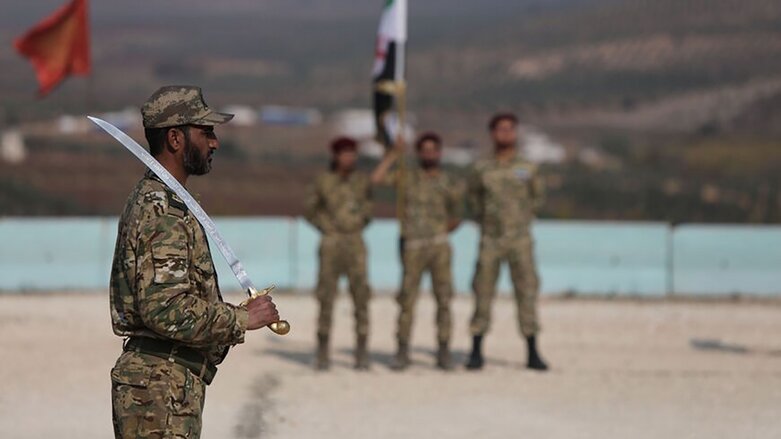120 people still missing since Turkey's October 2019 Syria offensive: report
"Most of the documented disappearance cases took place in the cities of Ras al-Ayn/Serê Kaniyê, Tell Abyad and their suburbs."

ERBIL (Kurdistan 24) – A joint report by Hevdestî - Synergy and Syrians for Truth and Justice revealed that at least 120 people are still missing since Turkey launched Operation Peace Spring in northeast Syria in October 2019.
A joint report by Hevdestî - Synergy and @STJ_SYRIA_ENG sheds light on the people who went missing during the Turkish offensive and provides a voice for the families searching for them.#PeaceSpring #Syria #MissingSyrians #disappearedhttps://t.co/4o6WNpUFoQ
— Hevdestî - Synergy - تآزر (@HevdestiSynergy) March 28, 2022
Turkish-backed armed groups have occupied the border areas of Tal Abyad and Ras al-Ain (Serekaniye) since capturing them from the SDF in October 2019.
Despite separate ceasefires brokered by the United States and Russia, clashes between the SDF and these Turkish-backed militias persist and threaten the stability of northeast Syria.
Read More: Turkish-backed forces shell Ain Issa countryside
The new report has documented the disappearance of at least 120 indigenous people of different ethnic and religious affiliations since Turkey launched Operation Peace Spring until March 2022.
"Most of the documented disappearance cases took place in the cities of Ras al-Ayn/Serê Kaniyê, Tell Abyad and their suburbs during the first days of Turkey's Operation Peace Spring," the report said. "Data collected revealed that most of those disappeared were civilian adult males who never participated in hostilities, according to their families."
Moreover, other families reported cases of missing persons who worked within the Autonomous Administration of North and East Syria (AANES) institutions, and others who fought alongside the People's Protection Units (YPG), the Women's Protection Units (YPJ), or the Syrian Democratic Forces (SDF).
The report said families of most of those missing believe their loved ones may be in prisons inside Turkish territory or held by the Turkish-backed Syrian National Army (SNA) in Syria. In addition, one of the families accused the SDF of arresting and hiding their son.
The report underlined that Turkish forces and the SNA are obligated to abide by international humanitarian and human rights laws. This includes treating detainees humanely and ensuring that all their rights are protected.
"Missing persons' families, impartial international, and human rights organizations should be given access to detention facilities. In addition, a database containing the names of all detainees and prisoners that families can access as part of their search for their loved ones must be created," the organizations said.
"All parties to the conflict, including state and non-state actors, should reveal the names of all civilian detainees and prisoners of war," it added.
"Inmates have the right to contact their families, and to be released if there are no charges against them, or to be brought to fair courts, without any delay if proved guilty."